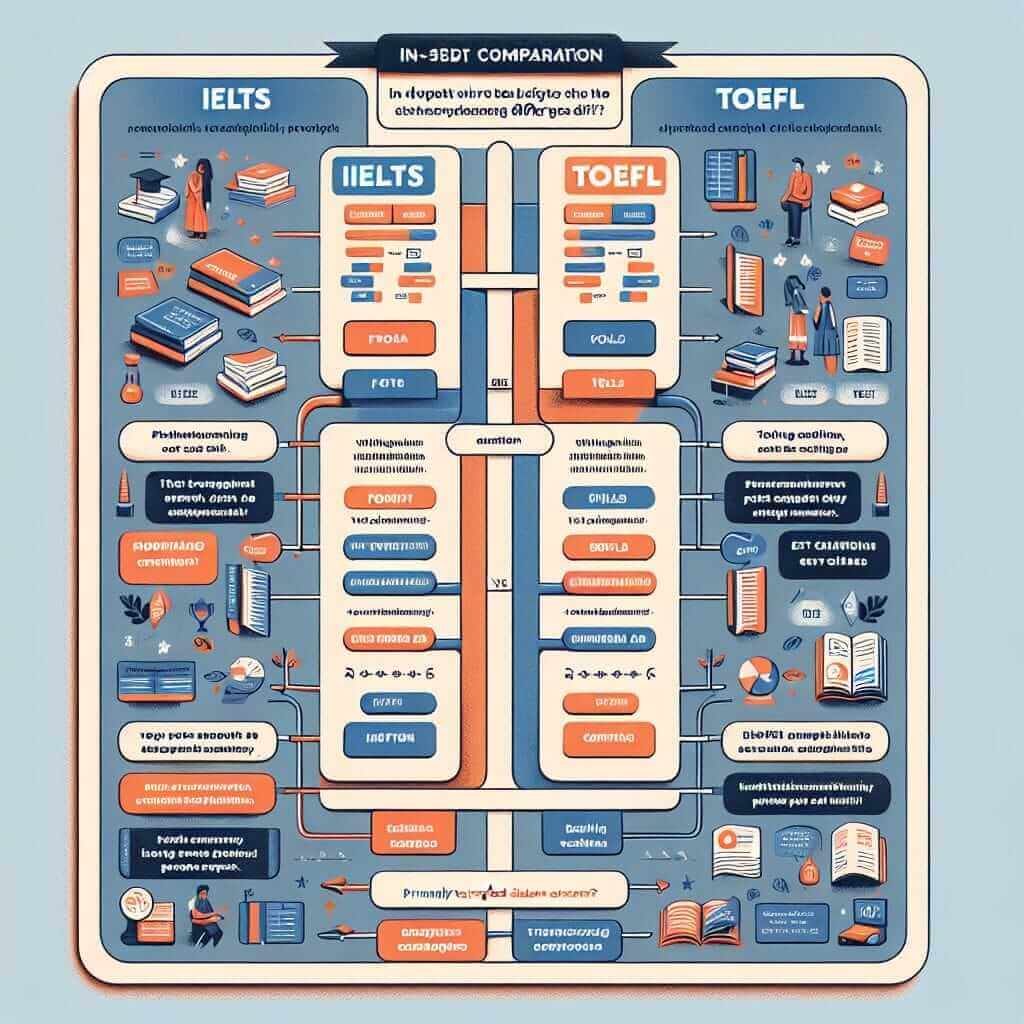As an IELTS instructor with over two decades of experience, I frequently encounter this question from my students. It’s a natural query, especially when facing the daunting prospect of standardized English proficiency tests. While both IELTS (International English Language Testing System) and TOEFL (Test of English as a Foreign Language) assess your English skills, they have distinct formats, assess different skills, and cater to different purposes. Therefore, declaring one definitively “more difficult” is an oversimplification. Let’s delve deeper to understand why.
Understanding the Core Differences
IELTS:
- Focus: IELTS primarily assesses English language proficiency for those who intend to study, work, or migrate to countries where English is the primary language of communication.
- Format: It offers two formats: Academic and General Training. The Academic version is for university admissions, while General Training is for work experience or migration purposes.
- Structure: IELTS tests four skills: Listening, Reading, Writing, and Speaking. The speaking test is conducted face-to-face with an examiner.
TOEFL:
- Focus: TOEFL primarily focuses on academic English and is generally required for admission to universities and colleges in North America.
- Format: TOEFL is entirely computer-based.
- Structure: Like IELTS, it also tests Listening, Reading, Writing, and Speaking. However, the speaking section involves recording responses to prompts.
Deciphering the Difficulty
The perceived difficulty between the two tests is subjective and depends largely on individual strengths and weaknesses.

Where IELTS Might Feel More Challenging:
- Speaking Face-to-Face: Some test-takers find interacting with a human examiner in real-time during the IELTS speaking test more nerve-wracking than speaking into a microphone for the TOEFL.
- Varied Accents: The IELTS listening test features a wider range of accents, which some learners may find challenging.
- Writing Tasks: The writing tasks in IELTS, particularly in the Academic version, often require more nuanced argumentation and a wider vocabulary range.
Where TOEFL Might Feel More Challenging:
- Note-Taking Skills: TOEFL’s integrated tasks, where you listen to a lecture and then answer questions or summarize information, heavily rely on efficient note-taking.
- American English Focus: TOEFL leans towards American English, which might be unfamiliar for those more accustomed to British English vocabulary and spellings.
- Computer-Based Format: The entirely digital format of TOEFL might feel impersonal and challenging for test-takers who prefer pen-and-paper tests.
Tips for Success: No Matter the Test
- Identify Your Strengths and Weaknesses: Understand which test format aligns better with your learning style and communication strengths.
- Practice Extensively: Familiarize yourself with the test format, question types, and time constraints of your chosen test.
- Develop Strong Vocabulary and Grammar: A strong foundation in English grammar and a wide range of vocabulary are essential for both tests.
- Seek Professional Guidance: Consider enrolling in a preparation course or working with an experienced tutor to receive personalized feedback and guidance.
Conclusion
Ultimately, the “more difficult” test depends entirely on your individual strengths, weaknesses, and the purpose for which you are taking the test. Focus on understanding the specific requirements of your chosen test, and dedicate sufficient time and effort to preparation. With hard work and the right strategies, you can achieve success in either IELTS or TOEFL.